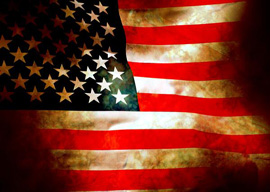
September 11, 2011

At the time of Kennedy’s assassination no one outside of a handful of individuals had seen the Zapruder film. Nor did they realize that one of the few reporters who had viewed it, a small-town, small-time hack named Dan Rather, would go on to fame, fortune, and national prominence for grossly mischaracterizing what he saw. No one thought their vaunted independent media would mislead them about so vital a matter.
In the time between public act and the beginnings of private inquiry, a war had been waged in a faraway land. A secret war, silently extended, had likewise been raging in neighboring nations though generally unknown at home. The national spending had increased by billions with no end in sight.
A politician from Texas, a supposedly populist Lyndon Johnson, has only recently been revealed as the principal promoter of the Gulf of Tonkin Incident in which the administration did everything in its power to exacerbate and inflate hostilities. In 2005 an internal National Security Agency report was declassified which stated in part of the event, “[I]t is not simply that there is a different story as to what happened; it is that no attack happened that night.”
Johnson knowingly and maliciously misreported to the American people so as to fool them into war.
Yet at the time the populace knew none of these facts. We know them today, when it is far too late for them to do us any good at all. Thus is the expiration date of all expediencies. Such secrets are of no further use once the opportunity to thwart their desired intent has passed.
How important it is to comprehend that at the time, not only did the general population not think these things would occur, but to a large degree they did not even think such massive misreporting and misleading machinations were possible.
Alas, profits, political opportunity, and the power of shock can work wonders on a population. People will believe almost whatever one tells them if it can be told as a simplistic tale of tragedy and hope. The population can no longer think on the fly, and they recollect no remembrance of things past.
So on that autumn day when an unspeakable act was perpetrated upon them, the Americans knew not that they might question, nor call to account, and not even that they should.
Many of them continue assenting to whatever is the easiest version of existence to accept. Life is difficult enough without the added burden of recognizing that very little of it is ever what it seems to be.
Still.
Some learn. Some question. Some comprehend. Though even for these, it took many monotonous days after the tragic day in Dallas before citizens began to understand what had been done not only to their president, but to themselves.
Today it all seems abundantly clear, so utterly obvious to the outsider. History is clear in hindsight yet dusty when it’s occurring. One must wait for the particles, and the particulars, to settle.
Thus, our ignorance or indifference will be inexplicable to those coming after us, just as their inaction shall mystify their own offspring.
Insight begins to develop over time—usually, about ten years after the event.